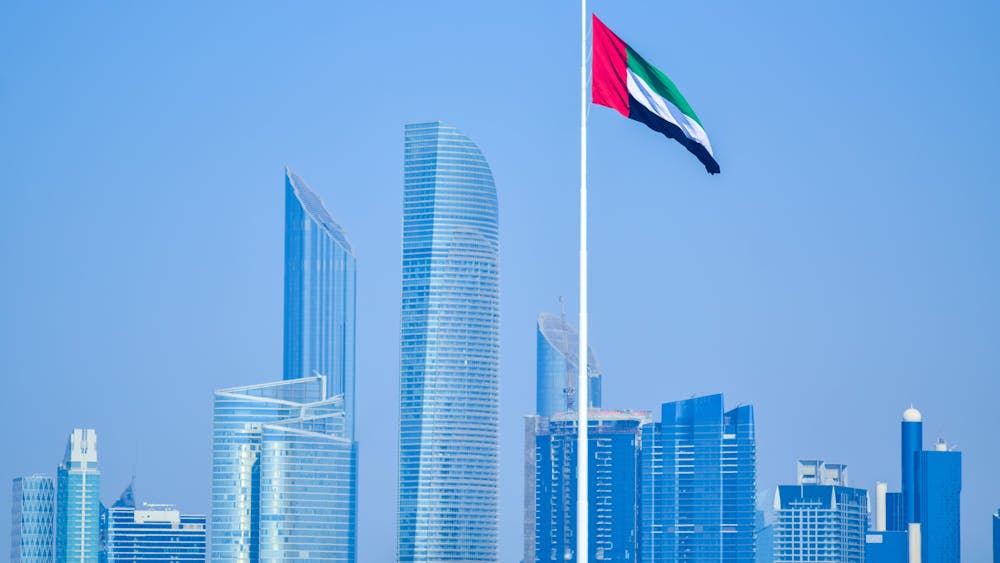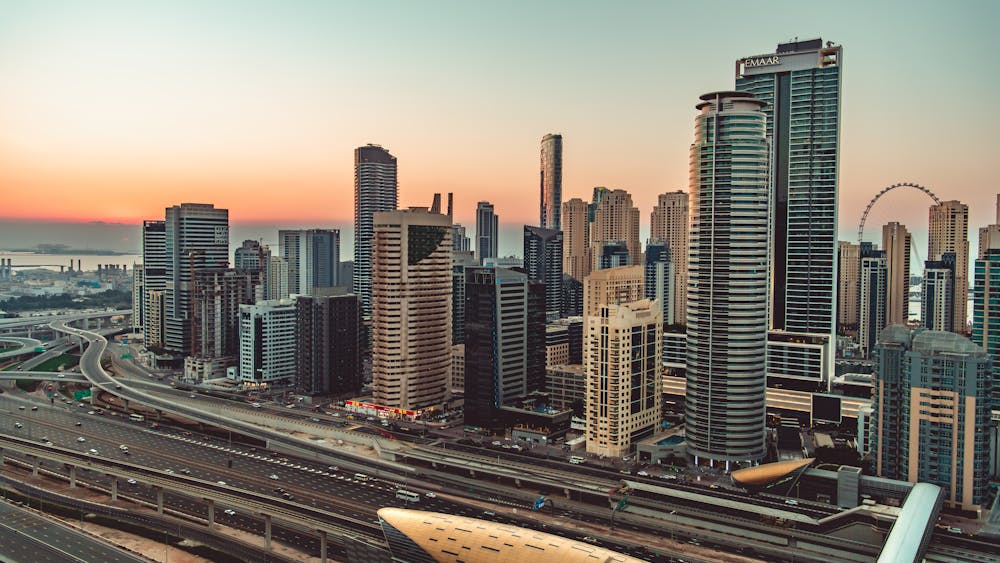UAE is important for expatriates, businesspersons, and tourists who visit the country in large numbers. Undoubtedly, the UAE today is experiencing rapid economic development, and there is a great demand for a residence permit for everyone. It is relevant to provide more details on the available types of UAE visas to get the permit. In this blog, you will find information on the UAE's main types of residency visas, the application process, and the criteria for getting one.
UAE Visa Categories List
Here is a summary of the main UAE visa categories:
- Work Visa
- Investor (Golden Visa)
- Family Visa
- Student Visa
- Retirement Visa
- Freelancer Visa
- Special Talent Visa
UAE Residency Visas & its Classification

Four main types of residency visas are offered to foreigners in the UAE, including employment visas, family visas, investment visas, and visas for special talents. The main types of visas in the UAE and what each involves are listed below:
Work Visa (Employment Visa)
Residency visas can be further divided according to the purpose of your stay, and the work visa is by far the most widespread. It is provided to individuals who have landed a job with an organisation operating in UAE, and the company sponsors the visa.
This is perhaps the most obvious one, as you do not just wake up one day wanting to work in a different country; you must have your employer waiting for you to start work back home before they offer you a work visa. Originally, the visa is issued for two to three years, depending on the applicant's employment contract. This process is before the visa is issued and requires one to be free from certain medical diseases and undergo other screening tests that may be embraced to ensure the applicants have clean records.
This is perhaps the most obvious one, as you do not just wake up one day wanting to work in a different country; you must have your employer waiting for you to start work back home before they offer you a work visa. Originally, the visa is issued for two to three years, depending on the applicant's employment contract. This process is before the visa is issued and requires one to be free from certain medical diseases and undergo other screening tests that may be embraced to ensure the applicants have clean records.
Investor Visa (Golden Visa)
The Investor Visa, also known as the Golden Visa, embodies the right to long-term residency for investors and business people. These visas can be valid for five or ten years, depending on the investment amount. Below are the key details and costs associated with the investor visa, highlighting the essential components and opportunities for applicants:
- Medical Examination: AED 700
- Emirates ID for 10 Years: AED 1,154
- Confirmation of Residency Permit for 10 Years: AED 2,656.75
- Administrative Fees: AED 1,155
Opportunities exist for investor visa holders to sponsor their families to keep them residents in the country in the long run.
Family Visa
Residency in the UAE permits an individual to sponsor a relative through a family visa, known as a casa visa. This visa lets a person sponsor his or her spouse or children. Generally speaking, visas are issued for up to three years and depend on the sponsor and his/her employment.
According to the new UAE family visa rule, the sponsor must earn a minimum wage of AED 4000 or AED 3000 with accommodation. Every family member is required to have health insurance. The documentation includes proof of relationship, salary certificates, and health insurance.
Student Visa
A student visa is granted to an individual admitted to accredited universities or other institutions of learning in the UAE. It normally lasts for one year and is renewable annually throughout the study programme.
Applicants must study at a UAE-recognised school and have a formal offer for the new term in the same institution. Application is usually made at a university or school where the university or school becomes the sponsor of the visa. One may also undergo medical tests or provide evidence of financial status before being granted the visa. The essential elements for processing a student visa include:
- An official admission letter from the university
- A medical fitness test
- A visa sponsor, which can be either the university or a resident relative
- Approval from the General Directorate of Residency and Foreigners Affairs (GDRFA) Dubai
Retirement Visa
The retirement visa is for expatriates 55 and older who wish to live in the UAE in retirement. It is given for five years and renewable within five-year intervals as long as the financial test is passed.
You can apply for the scheme if you earn a minimum of AED 20,000 per month, has savings of AED 1 million, or owns a property of AED 1 million.
Freelancer Visa
The freelancer visa is designed for such workers in the UAE. It is most suited to those in the media, technology, and design industries who require a visa to work in the country freely in their capacities. Self-employed entities can go through restricted free zones that provide freelance licences. Requirements for a Dubai Freelance Visa are listed below:
- Completed application form
- Passport copy
- Passport-sized photo
- Updated CV
- Emirates ID copy (if a UAE resident)
- Academic credentials certified by the Ministry of Foreign Affairs or UAE Consulate
- Two professional references (with contact details)
- Letter of intent or job offer detailing work history and background
The cost that will be incurred in the visa process is:
- Ranges from AED 14,170 to AED 26,000 (2-year visa: AED 18,170 to AED 26,000)
- Freelance Permit: AED 7,500 to AED 15,000
- Establishment Card: AED 2,000
Residence Visa:
- From outside UAE: AED 3,330 to AED 3,900
- From inside UAE: AED 4,960 to AED 6,340
- Medical Fitness Test: AED 300
- Emirates ID: AED 370
- Medical Insurance: AED 1,500 to AED 2,000
This visa is good for individuals not wishing to be committed to full-time employment with a specific company.
Special Talent Visa
The other category of the Golden Visa includes the special talent visa for self-employed persons with supplementary skills in science, technology, arts, or sports. This residence permit may remain valid for up to 10 years and is meant to attract the best foreign workers.
For one, candidates must support their claims of accomplishments or impact in their study or practice discipline with letters of approval from relevant professional organisations.
How to Apply for a Residence Visa in UAE

The following documents are required to apply for a residence visa in UAE. The requirements depend on the type of visa but generally include:
- A valid passport
- Passport-sized photos
- Sponsorship documents (for example, evidence of employment or investment).
- Medical examination results
- Health insurance
- Application for the Emirates ID as soon as the visa is issued
- The visa process generally takes about two to three weeks, but this may differ depending on the type of visa.
How to Get a Residence Visa in Dubai
Thus, getting a residence visa in Dubai is different if you have a different type of visa. As a rule, you will require a patron – for example, your employer or a relative – to start the process. The next procedure is to write a letter to your potential sponsor and then take a medical test, after which your documents will be processed.
You may proceed to file for an investor or freelancer visa. Other support, such as documents proving investment or professional qualifications, will be necessary.
Conclusion
The UAE has various types of residency visas relevant to different categories, such as professionals, investors, students, and retirees. If you want to work or do business in the UAE, are planning to invest in this country, or want to come here when you retire, it is high time you learn about these visa categories. This guide will give you a clear idea of how to apply for a residence visa in Dubai or anywhere in the UAE.
Please read: Exploring the latest UAE Visa Rules in 2024
My Account
Property Management
Careers
+971 600 522233
Contact
 How to: Buy in DubaiYour guide to everything you should know when buying a property in Dubai, whether you are a first time buyer or investor.Access Now
How to: Buy in DubaiYour guide to everything you should know when buying a property in Dubai, whether you are a first time buyer or investor.Access Now How to: Rent in DubaiYour guide to everything you should know when renting a property in Dubai.Access Now
How to: Rent in DubaiYour guide to everything you should know when renting a property in Dubai.Access Now CRC (Commercial Real Estate Consultants) is a market-leading real estate brokerage, affiliated with Betterhomes, specializing in commercial property sales, leasing, valuations & advisory. For more information, click below.Visit Website
CRC (Commercial Real Estate Consultants) is a market-leading real estate brokerage, affiliated with Betterhomes, specializing in commercial property sales, leasing, valuations & advisory. For more information, click below.Visit Website

 Discover a curated collection of luxury properties that offer the rare, the exclusive and the extraordinary.Visit website
Discover a curated collection of luxury properties that offer the rare, the exclusive and the extraordinary.Visit website Global AffiliationLooking beyond Dubai? Discover our exclusive international listings, from luxury homes to investment opportunities worldwide. Whether you're seeking a holiday retreat or a high-yield asset, our global network connects you to the finest properties across top destinations.View now
Global AffiliationLooking beyond Dubai? Discover our exclusive international listings, from luxury homes to investment opportunities worldwide. Whether you're seeking a holiday retreat or a high-yield asset, our global network connects you to the finest properties across top destinations.View now Property ManagementRemove the hassle of property management. Our turnkey service covers all bases, from finding tenants to carrying out repairs.Get in Touch
Property ManagementRemove the hassle of property management. Our turnkey service covers all bases, from finding tenants to carrying out repairs.Get in Touch Area GuidesFrom downtown hubs to waterfront enclaves and family neighbourhoods, uncover your perfect community.View Area Guides
Area GuidesFrom downtown hubs to waterfront enclaves and family neighbourhoods, uncover your perfect community.View Area Guides










